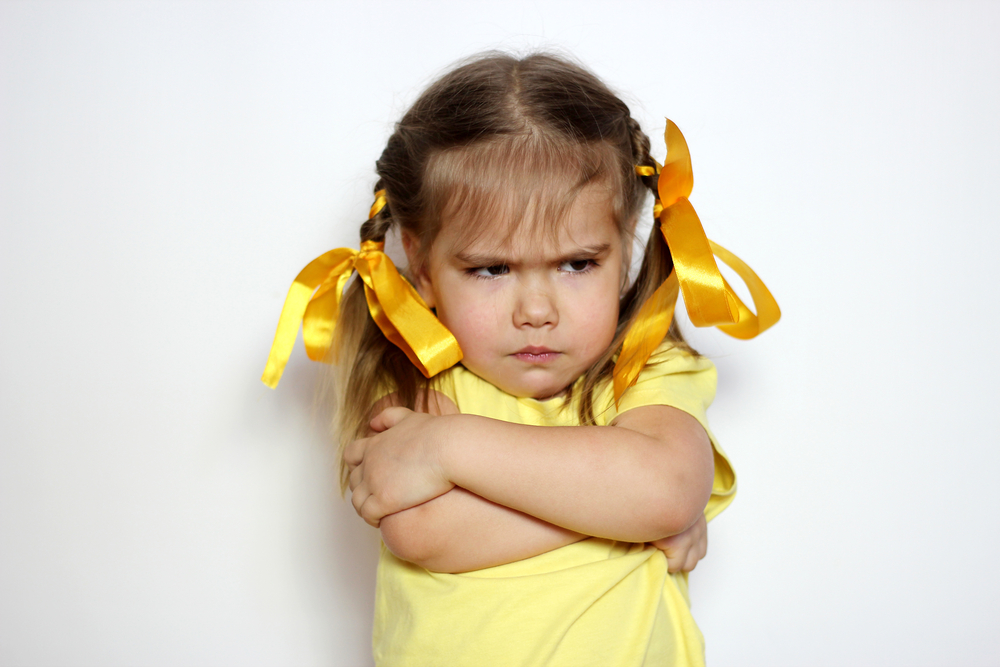Parents often give affectionate pet names without realizing how they make their kids feel. What may sound like a sweet inside joke or a cute habit can actually create quiet embarrassment, especially as children grow older and start forming their identities. Understanding which labels cross the line can help parents build confidence instead of insecurity. Here are seven seemingly harmless nicknames that kids secretly dislike—and why it may be time to retire them.
1. “Chunk” or “Chubbs”
Weight-related nicknames can stick harder than parents expect. Even if used playfully, they can make children self-conscious about their bodies. Kids often remember being called “Chunk” long after they’ve outgrown baby fat, and it can influence how they view themselves in photos or among peers. When classmates overhear these “harmless nicknames,” embarrassment and shame often follow. Replacing body-based jokes with encouragement about strength or kindness can make a lasting difference in how kids see themselves.
2. “Princess” or “Little Man”
While these terms might sound endearing, they can subtly shape how kids see their gender roles. Being called “Princess” can make a girl feel pressured to always be pretty or delicate, while “Little Man” can push boys to act overly tough. Children may not voice it, but they often wish adults would recognize their personalities instead of their roles. Over time, these harmless nicknames can box kids into identities they didn’t choose. It’s better to celebrate their unique qualities rather than rely on outdated labels.
3. “Goofball” or “Clown”
When kids are labeled as the funny one, they might feel like they can’t be taken seriously. While humor is healthy, being constantly called “Goofball” can make children believe they’re not seen as smart or responsible. Some start to suppress deeper emotions or hide their achievements to maintain the funny image. These harmless nicknames can quietly undermine their confidence in school or friendships. Encourage laughter without turning their personality into a permanent punchline.
4. “Baby”
Few labels make older kids cringe like being called “Baby.” Even affectionate parents sometimes forget how fast their children are growing up. Using this nickname in public, especially around friends, can feel humiliating. It can also create mixed signals—kids want love but also independence. Swapping “Baby” for more age-appropriate praise, like “buddy” or “champ,” shows that you respect their growth while still keeping your bond strong.
5. “Smarty Pants”
At first, “Smarty Pants” might sound like a compliment, but for many kids, it feels more like teasing. Children who are academically gifted often face pressure from peers and adults alike. Constantly being labeled this way can make them anxious about making mistakes or being perceived as arrogant. What starts as a proud nickname can turn into a silent burden. Instead of these harmless nicknames, try celebrating effort rather than outcome—it teaches humility and resilience.
6. “Stinky” or “Messy”
Names like “Stinky” or “Messy” may seem funny in the moment, but they can stick long after a single smelly soccer practice or messy bedroom phase. Kids internalize these descriptors, even if they laugh on the surface. The danger is that they start believing that clumsiness or dirtiness defines them. Over time, that affects self-esteem and hygiene motivation. Parents can replace these harmless nicknames with gentle humor that builds rather than breaks down confidence.
7. “Lazybones”
When parents call kids “Lazybones,” it’s often out of frustration, not cruelty—but the message can sting. Many children hear it as “you’re not good enough,” rather than “you didn’t try hard enough.” This type of nickname can create guilt and resistance instead of motivation. Even jokingly using “Lazybones” can damage a child’s relationship with work and responsibility. A more constructive approach is to focus on effort and celebrate small progress instead of labeling behavior.
When Harmless Nicknames Stop Feeling Harmless
Most parents mean no harm when using pet names, but intention doesn’t erase impact. Words shape how kids see themselves, especially when they come from trusted adults. The safest approach is to listen—if your child flinches, frowns, or asks you not to use a certain name, take it seriously. Their discomfort signals a chance to strengthen trust and mutual respect. By replacing outdated or embarrassing labels with positive affirmations, you build a foundation for lasting confidence and connection.
Have you ever realized one of your “harmless nicknames” was bothering your child? Share your experience or advice with other parents in the comments.
What to Read Next…
Is Your Family Using a Baby Name That Schools May Mock?
8 Things Parents Say That Create Lifelong Guilt
Beyond The Jokes: 10 Phrases You Should Never Say To Your Child After A Tantrum
7 Signs Your Kids Are Struggling With Anxiety You Keep Calling “Just a Phase”
Don’t Do This: 5 Phrases You Say To Your Toddler Encouraging Bad Behavior
The post 7 “Harmless” Nicknames That Kids Secretly Hate appeared first on Kids Ain't Cheap.








